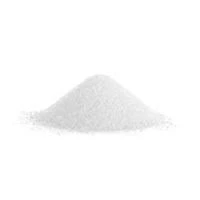
potassium sulfate fertilizer
Understanding Potassium Sulfate Fertilizer Benefits and Applications
Potassium sulfate (K₂SO₄) fertilizer, commonly referred to as sulfate of potash, has gained prominence in modern agriculture due to its unique composition and benefits. As a source of potassium (K) and sulfur (S), it is vital for plant growth and development, and plays a crucial role in improving crop yield and quality.
Composition and Nutritional Value
Potassium sulfate contains around 50% potassium and 18% sulfur by weight, making it a highly efficient nutrient source for plants. Potassium is an essential macronutrient that regulates various physiological processes, including photosynthesis, water regulation, and enzyme activation. Sulfur, on the other hand, is vital for the synthesis of amino acids and proteins, contributing to the overall health and vigor of the plant.
Benefits of Potassium Sulfate
One of the primary advantages of potassium sulfate fertilizer is its ability to promote robust root development and enhance plant resilience against environmental stresses, such as drought and disease. Adequate potassium levels help plants utilize water more efficiently, which is increasingly important in the face of climate change. Moreover, the presence of sulfur aids in the production of chlorophyll, ensuring that plants can effectively harness sunlight for energy.
Another benefit lies in its compatibility with various crops. Potassium sulfate is particularly beneficial for sensitive crops, such as fruits, vegetables, and tobacco, where high chloride content (found in some other potassium fertilizers) may inhibit growth and quality. Additionally, its neutral pH ensures that soil acidity levels remain stable, fostering a balanced nutrient environment for healthy plant development.
potassium sulfate fertilizer

Application Methods
Potassium sulfate can be applied through various methods, including broadcasting, banding, or fertigation. The choice of application method depends on factors such as crop type, soil conditions, and growth stages. It is essential to perform soil tests prior to application to determine the appropriate potassium and sulfur levels needed for optimal growth.
Environmental Considerations
In recent years, there has been a growing emphasis on sustainable agriculture, and potassium sulfate aligns with this movement. Being a natural mineral source, it has minimal environmental impact when compared to synthetic fertilizers. Furthermore, its use can help improve soil health and biodiversity, benefiting the wider ecosystem.
Conclusion
In summary, potassium sulfate fertilizer is a valuable tool for farmers and gardeners aiming to enhance plant health and productivity. Its unique nutrient profile and benefits make it an ideal choice for a variety of crops, particularly those sensitive to chloride. By understanding its applications and advantages, growers can make informed decisions that promote sustainable agricultural practices and improve overall crop performance.
-
Comprehensive Guide to Acetic Acid as Preservative: Benefits, Uses & Future TrendsNewsNov.24,2025
-
What Is a Food Additive? Global Insights, Applications & Future TrendsNewsNov.24,2025
-
968 Sweetener: The Modern Solution for Health-Conscious SweeteningNewsNov.23,2025
-
Discover the Benefits and Uses of 965 Sweetener (Erythritol) | Tenger ChemicalNewsNov.23,2025
-
961 Sweetener - A Next-Gen Sugar Alternative for Health and IndustryNewsNov.23,2025
-
Understanding 960 Sweetener: The Modern Sugar Alternative for Health and IndustryNewsNov.22,2025
-
Everything You Need to Know About 955 950 Sweeteners – Benefits, Uses, and TrendsNewsNov.22,2025
Hebei Tenger Chemical Technology Co., Ltd. focuses on the chemical industry and is committed to the export service of chemical raw materials.
-

view more DiethanolisopropanolamineIn the ever-growing field of chemical solutions, diethanolisopropanolamine (DEIPA) stands out as a versatile and important compound. Due to its unique chemical structure and properties, DEIPA is of interest to various industries including construction, personal care, and agriculture. -

view more TriisopropanolamineTriisopropanolamine (TIPA) alkanol amine substance, is a kind of alcohol amine compound with amino and alcohol hydroxyl, and because of its molecules contains both amino and hydroxyl. -

view more Tetramethyl Thiuram DisulfideTetramethyl thiuram disulfide, also known as TMTD, is a white to light-yellow powder with a distinct sulfur-like odor. It is soluble in organic solvents such as benzene, acetone, and ethyl acetate, making it highly versatile for use in different formulations. TMTD is known for its excellent vulcanization acceleration properties, which makes it a key ingredient in the production of rubber products. Additionally, it acts as an effective fungicide and bactericide, making it valuable in agricultural applications. Its high purity and stability ensure consistent performance, making it a preferred choice for manufacturers across various industries.





